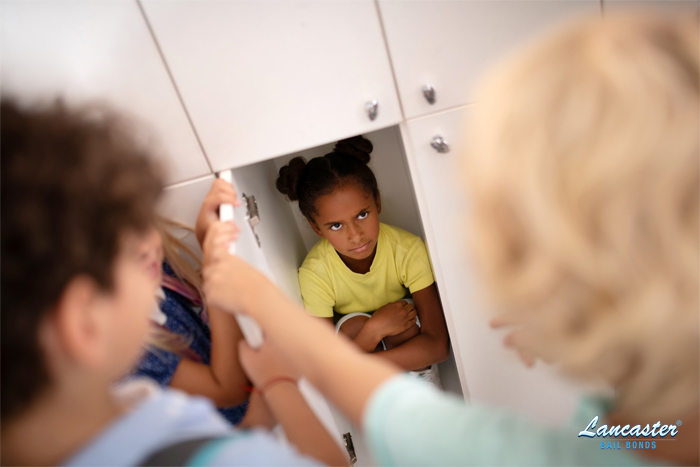Many of the kids who are returning to school this fall haven’t attended an actual school since March 2020. While this return is good in terms of reconnecting on a social level and regaining some normalcy, it also means that once again, parents are worried about bullies.
A single bully can do an enormous amount of damage to a child. They hit the child’s self-confidence takes can haunt your child for the rest of their life. In addition to psychological trauma, parents also worry about bullying and physical abuse.
Most kids don’t report bullying problems to their parents. Catching the early warning signs and putting together a plan of action takes a great deal of diligence, observation, and communication.
Pay Attention to Your Child’s Appearance Both Before and After School
The first sign that a child is being bullied is often changes to their clothing and overall appearance at the start of the school day versus the end. Yes, kids trade clothing and jewelry. Yes, kids rip, tear, and stain their clothing via innocent actions. However, if your child is consistently coming home looking bedraggled, or is hiding torn clothing, or constantly has items of clothing missing, it could indicate that your child has attracted a bully.
Look for Bruises, Cuts, and Scrapes
Active kids do get banged up while playing, but kids who are being bullied will often also be covered in cuts and bruises which is why you should ask how your child was injured. Not only should you pay attention to how they received the injury, but also to how they tell you about it. If the bruise was sustained while playing sports, your child will likely have an entire adventure regarding the wound. However, if they are quiet about the injury or try to hide it, it could indicate a bullying problem.
Changes in Personality
Kids’ personalities are in a constant state of flux. They go through stages of intense joy, irritation, and resistance. Sometimes these changes happen at a rapid-fire pace. What isn’t normal is for a happy, bubbly kid who likes school to go through a prolonged period of depression where they no longer want to socialize. It’s also unusual for your child to suddenly lose all interest in activities and friends that they have always loved in the past.
Sudden and long-term changes often indicate a bullying problem.
If you notice signs that your child’s return to school has resulted in them being bullied, you’ll want to take a proactive stance before the situation leaves your child emotionally or physically scarred.
What to Do if You Suspect Your Child is Being Bullied
Knowing that a bully is making your child miserable is the worse feeling in the world. Your instinct is to do everything in your power to resolve the problem and make your child’s problems go away.
The problem is that you need to calm down and think about what the best way to handle the situation really is.
Flying off the handle and confronting the child could result in criminal charges being filed against you. Telling your child to deal with the situation usually makes things even worse.
The best course of action is scheduling a meeting between yourself and your child’s teacher. Hopefully, the teacher will have some actual thoughts on when the bullying is taking place and how to handle it. Don’t be surprised if figuring out a resolution requires bringing additional people, such as school administrators and bus drivers into the meeting.
If the situation can’t be resolved, you may have to explore alternative classrooms and schooling options.
Communicate with Your Child
Sitting down with your child and having a long conversation with them about the situation is another good step towards resolving the situation. Knowing that you understand and are empathetic does wonders to help heal your child’s psychological trauma. More importantly, knowing that you’re on their side encourages your child to open up about additional bullying problems, which helps you keep tabs on the problem.
Find Ways to Boost Your Child’s Self-Confidence
Getting the actual bullying situation under control may take time, but while you struggle to deal with that, you can do things to make your child feel better. Encourage them to hang out with their close and kind friends. Get them involved in activities that they love. Explore enrolling them in counseling sessions where a professional can help your child work through the emotional damage while also providing your child with better coping options.
The most important thing to remember when dealing with a child that’s being bullied is that you’re an adult and have to handle the situation in a manner that’s both pro-active and calm.

